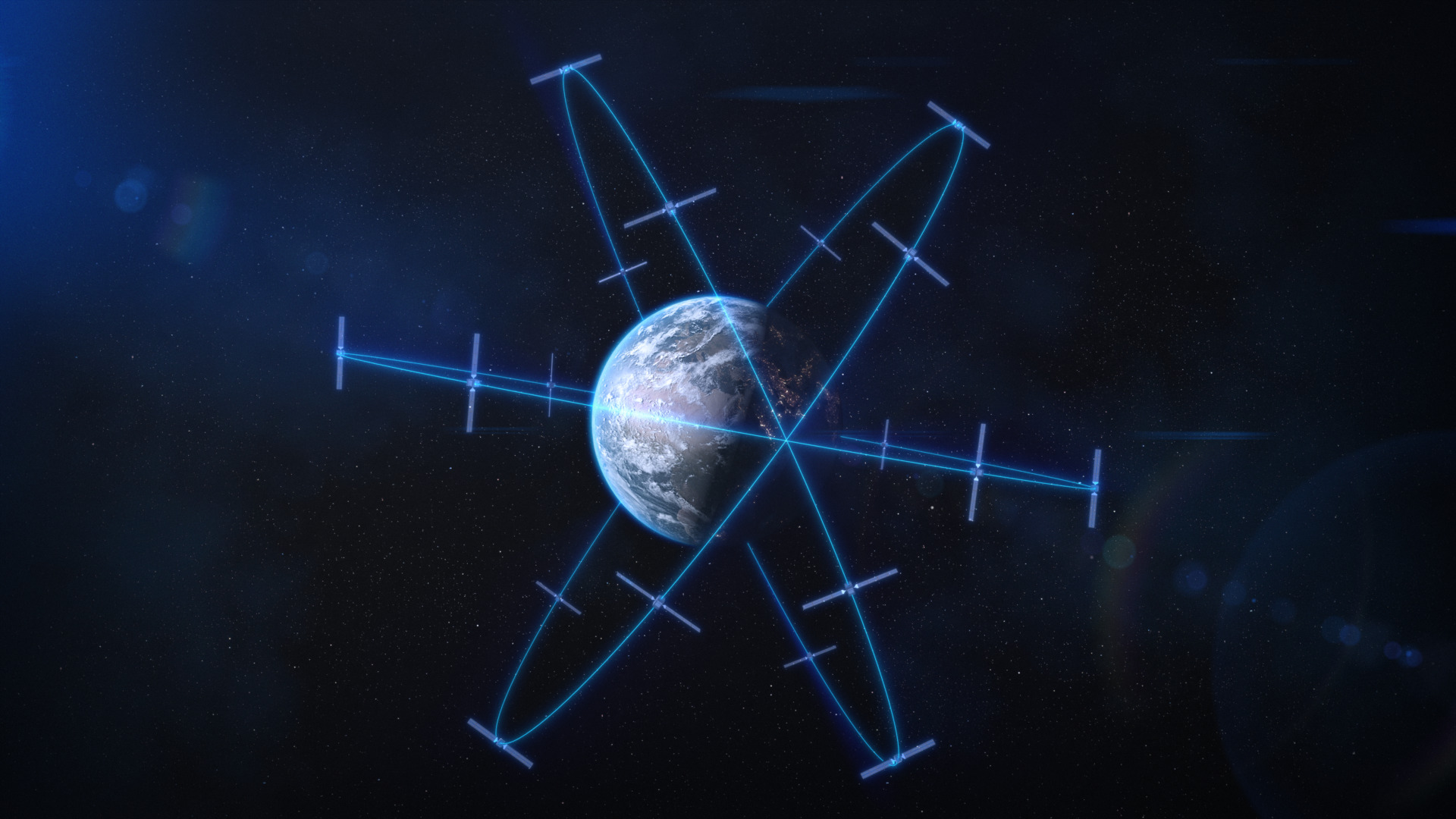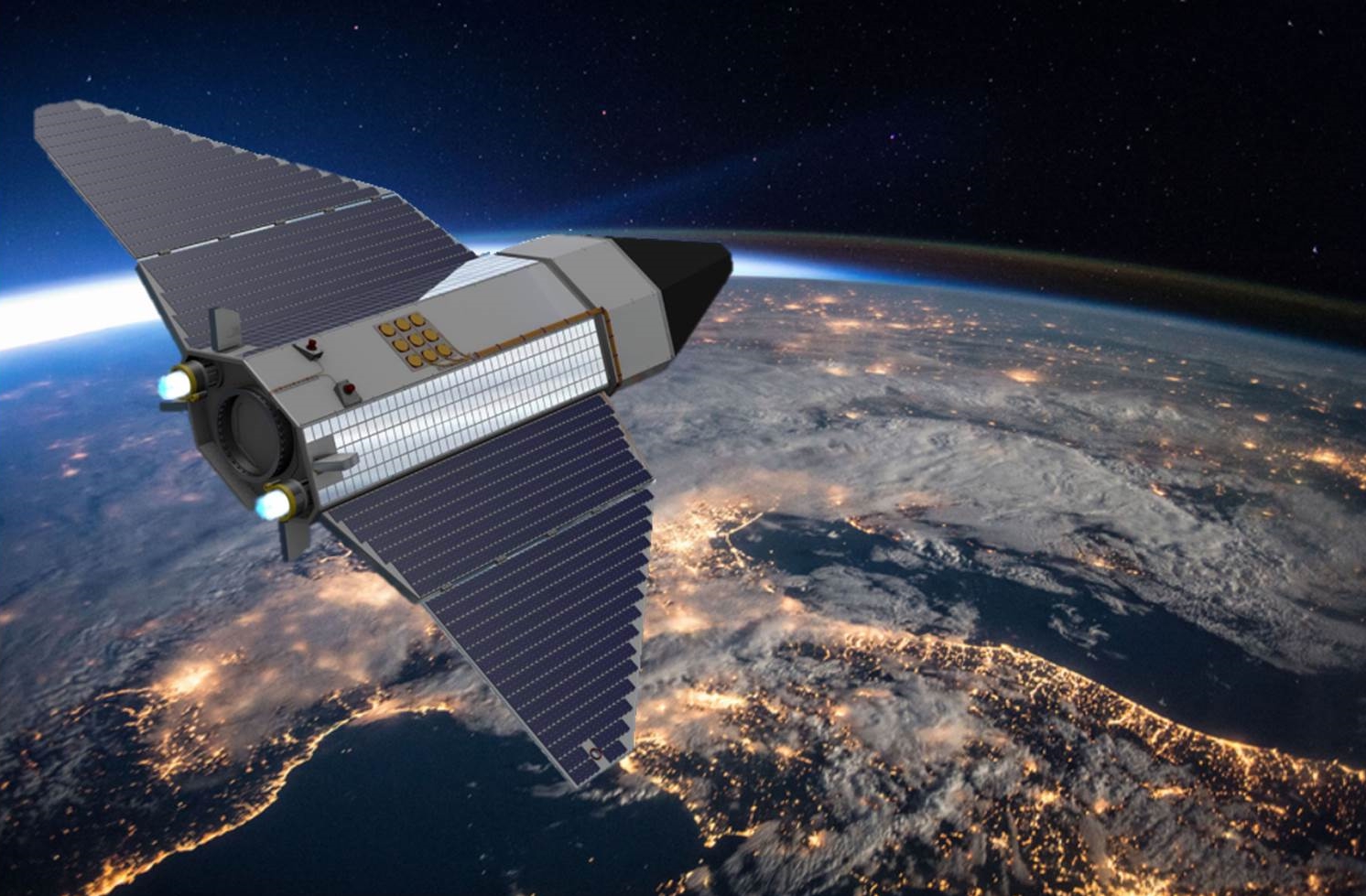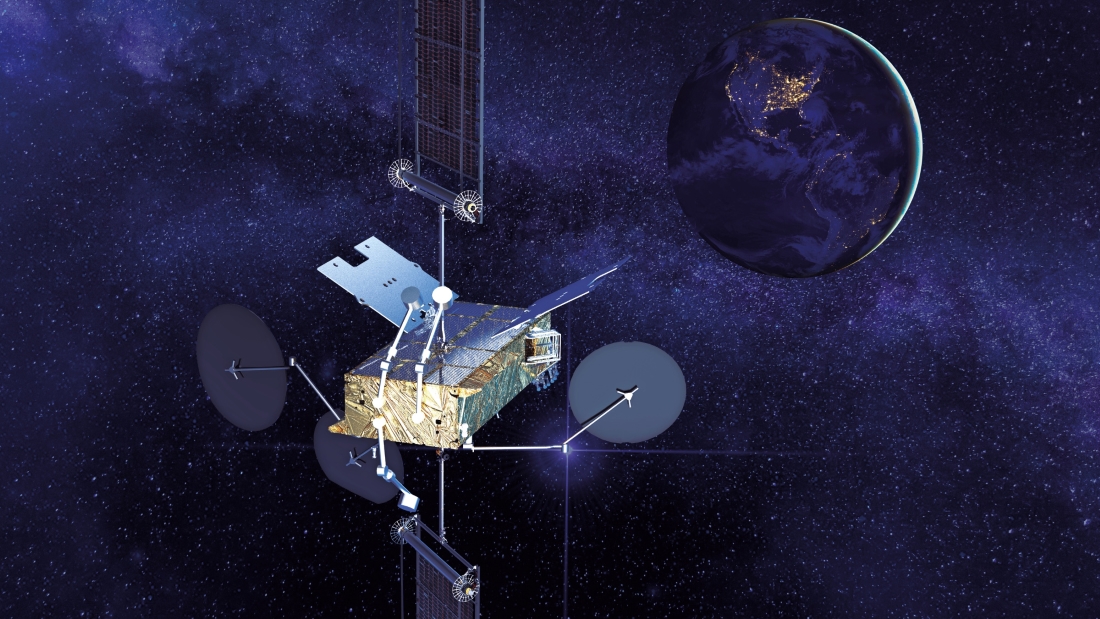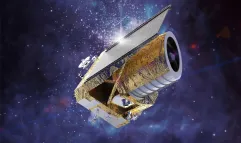Alongside Thales, Thales Alenia Space will be in London from September 12-15 for DSEI, the Defense and Security Equipment International trade show and exhibition. Bringing together all major players in the defense and security markets, this event gives Thales Alenia Space an excellent opportunity to showcase its latest solutions in the fields of defense telecommunications, radar and optical Earth observation systems dedicated to surveillance, and many more. The Company will emphasise how Space provides the global digital backbone for military operations to provide secure connectivity anywhere, anytime.
Space to secure and defend
Space is playing an increasingly vital role in defense, especially for military communications, space-based intelligence, navigation and security.
Military satellite communication systems
Milsatcom systems will be increasingly interconnected, forming a true spaceborne network that is both resilient and diversified (with multiple orbits). Thanks to our systems, armed forces can rely on an optimal combination of the global coverage and short latency of LEO*, MEO** and polar constellations and the power and resilience of geostationary satellites, like Italy’s SICRAL 3 system and its French equivalent, SYRACUSE IV. These systems deliver the mobility, performance and security our militaries need.
Space-based intelligence

BlackSky © Thales Alenia Space
Many countries use our space systems to gather high-precision imagery. These systems draw on our unrivalled expertise encompassing optical and radar instruments and high and very-high-resolution technology. The return of war in Europe has raised the question of space-based observation systems, including high-performance combined radar and optical systems. Intelligence relies on these new technologies, as deployed with the BlackSky optical observation constellation and its Iride radar counterpart, both offering high revisit rates. Thales Alenia Space has proven expertise in all these areas, which are helping boost Europe’s independence in space, especially with the IRIS2 communication constellation.
Positioning and navigation

Galileo Second Generation © Thales Alenia Space
Satellite navigation systems like Galileo deliver highly accurate positioning and timing services, which are crucially important for our armed forces. They offer the accuracy needed to determine the exact position of units in the field, optimize movements and synchronize weapon systems using a single time reference.
Thales Alenia Space developed the ground mission segment and security system for the first-generation Galileo constellation. We’re now developing the first six satellites for the second-generation constellation. Recently, the company confirmed its major role in Galileo Second Generation, signing additional contracts for the ground mission segment and system activities. We’re also working on a new low-orbiting positioning, navigation and timing (LEO PNT) concept, which will make Galileo signals even more robust and accurate.
Controlling space
Space today is a potential theatre of conflict. More than ever, knowing what’s happening in space and controlling it is critically important, because our militaries rely on spaceborne capabilities.
Thales and Thales Alenia Space have pooled their strengths on a number of key initiatives, from enhanced space situational awareness to active space-based assets to protect satellites and C2 systems for planning and conducting space operations.
Sustainability in space is a major challenge for all stakeholders today: space agencies, operators and industry. At Thales Alenia Space, we’re building eco-design principles into our products and playing a key role in sovereign European programs like Copernicus for environmental monitoring and the Galileo global navigation satellite system, which helps calculate the most efficient air and sea routes and reduce our energy dependence.
Reaching the Very Low Earth Orbit with Skimsat

Skimsat © Thales Alenia Space
The environment in space is becoming ever more complex, with more nations having access to advanced space systems and the proliferation of offensive space capabilities.
A critical part of resilience in space in the future will be the ability of nations to harness responsive space.
In response to these factors, Thales Alenia Space in the UK has designed a revolutionary new Very Low Earth satellite concept called Skimsat,
Skimsat offers a number of key advantages for defense users, in particular low detection thanks to its VLEO position, high responsiveness and the modularity of the platform, which has been designed to accommodate multiple payloads with common interfaces. Skimsat’s aerodynamic shape will reduce the drag as it skims the Earth atmosphere and will not present any risk from space debris, since it will operate in a very low Earth orbit, which is not only unpopulated but also a 'self-cleaning' orbit due to atmospheric drag.
Skimsat’s compact size will allow it to be compatible with launchers designed for small satellites and provide customers with substantially shorter lead times than traditional satellite launchers of similar capability.
This revolutionary initiative is fully included in the new space approach of Thales Alenia Space and reflects the company’s capability to address disruptive needs in partnership with smaller companies.
Leading the geostationary market in 2021 and 2022

Space INSPIRE © Thales Alenia Space
Thales Alenia Space offers an array of product lines to meet evolving needs and expectations in the telecommunications market.
Our proven Spacebus 4000 B2 platform is ideally suited to the regional requirements of telecom operators. We’ve also designed and built satellites on our Spacebus NEO platform with electric propulsion systems. Using electric propulsion increases payload capacity, giving operators greater flexibility. Spacebus NEO is ideally suited to delivering superfast satellite broadband and bridging the digital divide anywhere in the world.
Our latest Space INSPIRE product line — an extremely flexible software-defined solution that can be reconfigured in orbit — proved highly successful with major operators in 2022. Actually, last year, we won contracts for six communications satellites, five of them based on our new Space INSPIRE solution, strengthening our leadership in the geostationary communications market. Operators such as SES, Intelsat, Arabsat and Eutelsat strongly believe in that pioneering solution.
The propulsion subsystems embarked onboard our Spacebus NEO and Space INSPIRE satellites are designed and integrated at Thales Alenia Space in the UK.
* LEO: Low Earth Orbit
** MEO: Medium Earth Orbit


